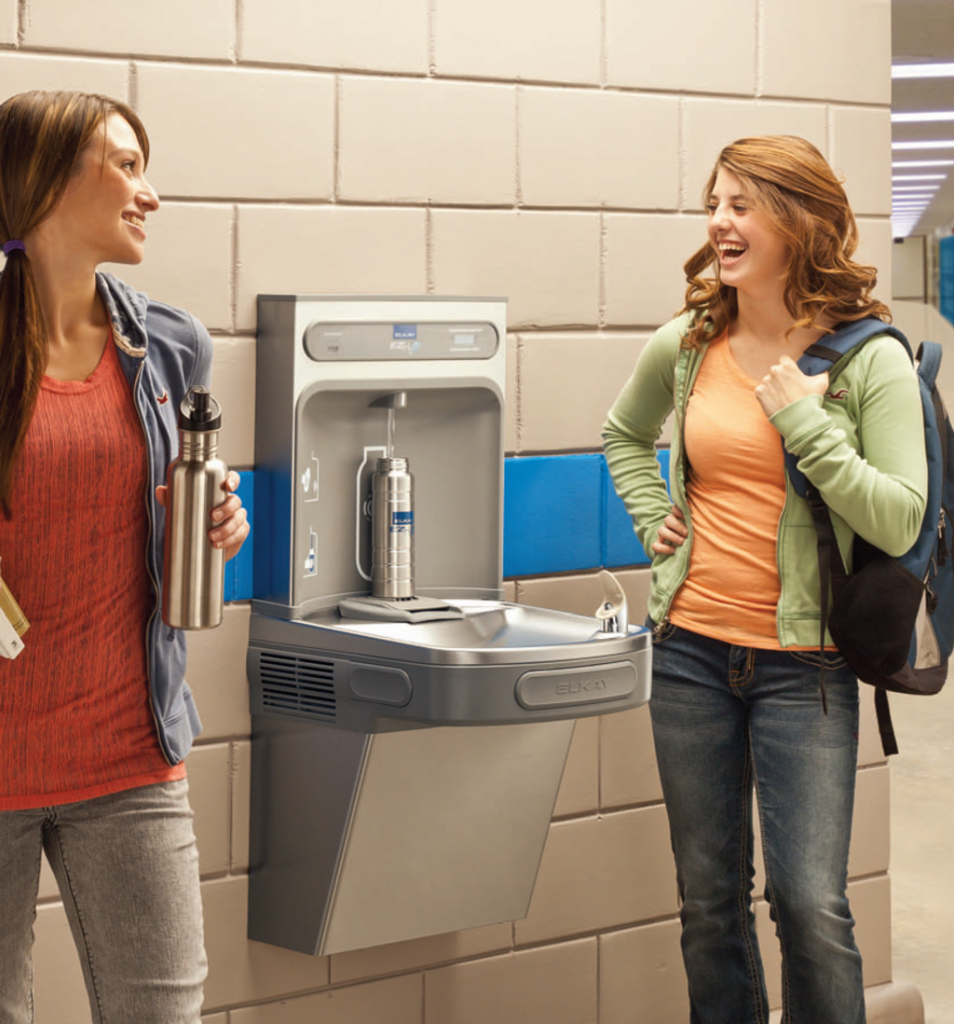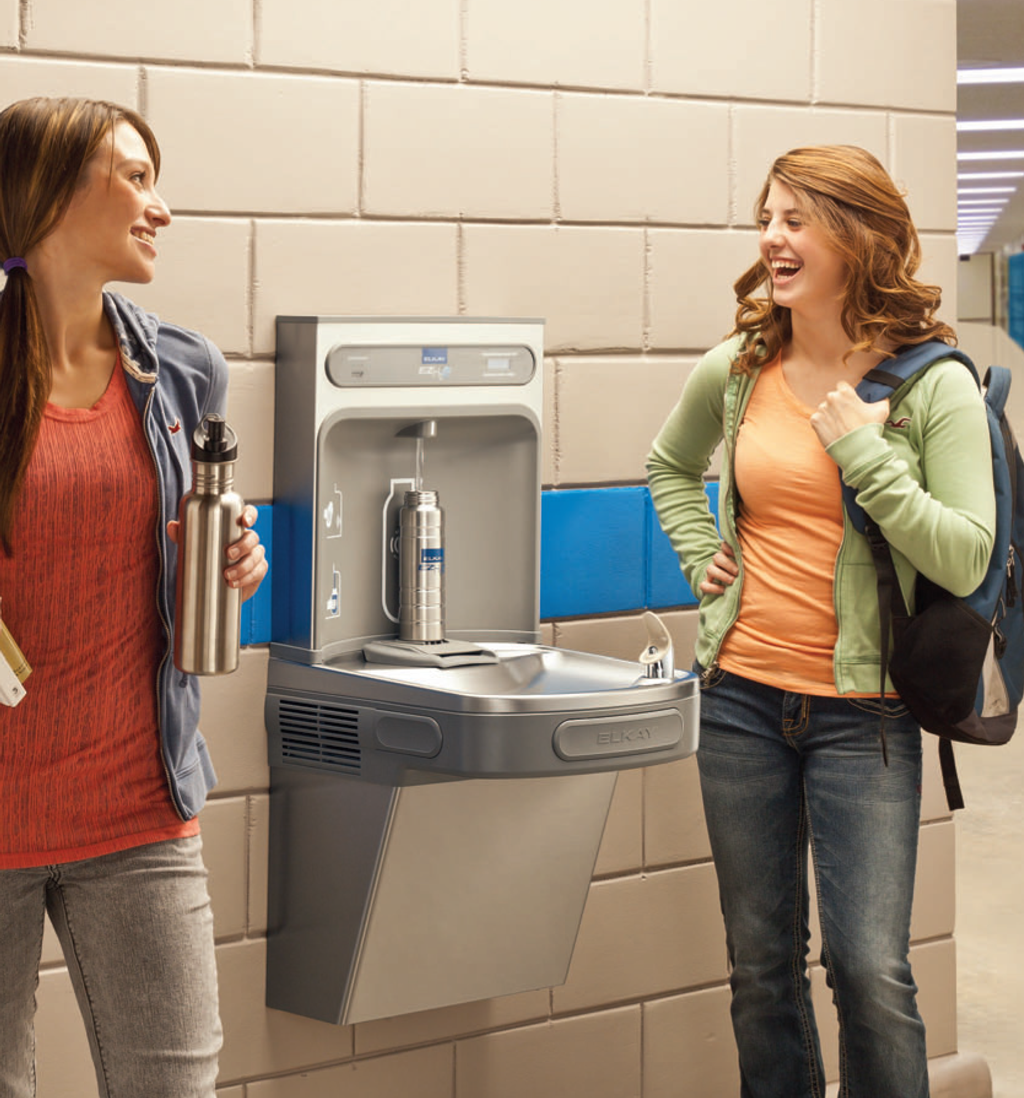By Katherine Gibson (The Cascade) – Email
Print Edition: May 21, 2014

Tired of buying bottled water to quench your thirst during class? Well, come the end of summer semester, there will be enough free water options that you will no longer have to.
By replacing all the existing fountains and water stations with new and improved bottle refills in each building, UFV hopes to encourage more sustainable water use on campus.
As facilities and campus development executive director Craig Toews explains, this project will be implemented in two different phases: adding this new technology to the main floors of each campus building, then further expanding in following years.
Two different models will be implemented depending on the location and services already provided. For instance, a combined bottle refill station and water fountain will replace existing fountains, whereas other locations will only have a refill station added.
By adding more of these stations, UFV hopes to make buying bottled water less desirable — helping students save money and adding to campus sustainability as a whole.
“We aren’t at the point of abolishing [bottled water],” Toews notes, “but we are at the point of offering so many alternatives to bottled water that we can eventually drive [bottled water] out.
“We want to make as much good-tasting water available to students for free,” he says, “and we want it to be convenient.”
Rather than keep the current bottle refill stations where they currently reside in the cafeteria and library, these stations will also be removed as newer models are added to the school — a decision based both on running cost and overall effectiveness.
“[The current refill stations] are very bulky and they use a lot of electricity,” Toews says. “So, again, from a sustainability point of view this wall-mounted refill station is a much better way to go in terms of overall service to students and cost of running it.”
The funding for this project will come from the university’s own budget, as well as funding allotted to the university for upgrading and improving the building. However, this outside funding hinges on official approval.
“There are about twelve units that we’d like to do [but] we haven’t received our ministry funding announcement yet,” Toews explains. “So, it’s a little bit funding-dependent, and how much physically we can get done in the summer.”
While the cost and sustainability of these water stations is a convincing selling point, Toews believes the impact of adding these stations will be far-reaching.
“This really plays into life on campus in a very simple way — but it’s very organic. I think it speaks to the university trying to be more sustainable but also it creates an environment on campus where students have more options and more services,” Toews concludes. “Having water is a fundamental need — it helps make life on campus more enjoyable.”


